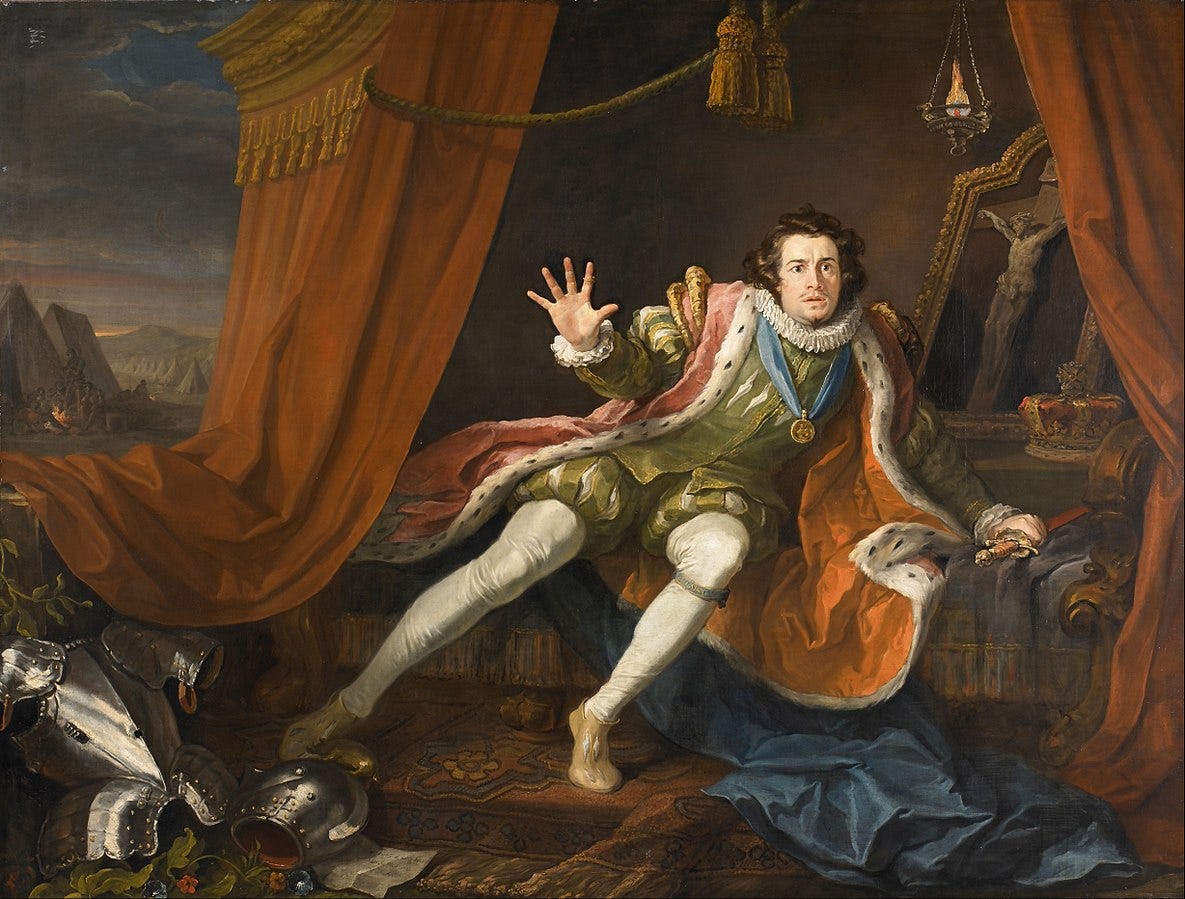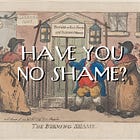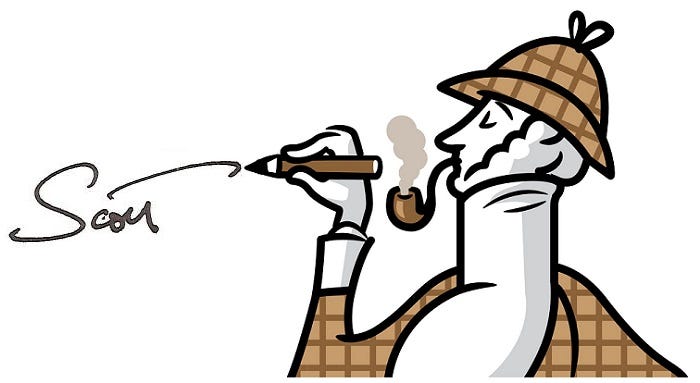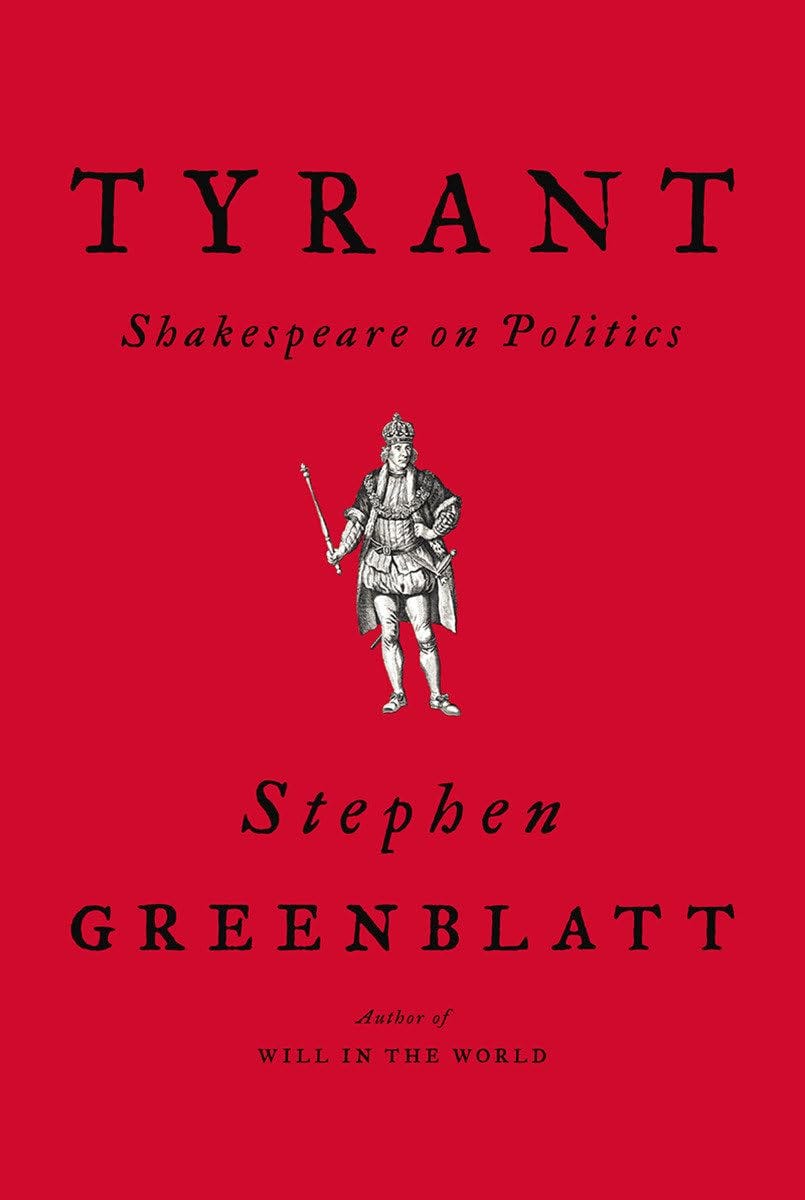
“Keep no company with those whose position is high but whose morals are low.”
— G.E. Hong, c. 320
Not long ago, scandal was a matter of consequence.
Careers ended. Reputations burned. The disgraced retreated into private silence, perhaps to write memoirs filled with regret and literary apologia, licking their wounds at their country clubs as they waited for less prominent opportunities or board seats.
But in the present age—when a CEO’s dalliance at a Coldplay concert trends for thirty-six hours and the Epstein files remain sealed beneath the bureaucratic equivalent of a shrug—the machinery of shame appears to have rusted into abstraction.
The moral imagination, dulled by spectacle and near-constant distraction of digital bread and circuses, now treats misconduct among the powerful as ambient noise: regrettable, yes, but hardly actionable.
We inhabit a political theater where the villain may still soliloquize—where Claudius and Richard stride the stage with poisoned chalices and ghostly secrets—but the audience, glancing at their phones, now prefers memes to reckoning, irony to judgment.
That our leaders fail to answer for their misdeeds is no longer a revelation. It is a habit.
Lately though, there seems to be an undercurrent forming, a riptide so powerful it threatens to sweep away the most powerful in waves of accountability.
What does this say about leadership, and what does it say about us?
A Nearly Unquenchable Thirst
By now, a vast majority of the public is acutely aware of the Astronomer/Coldplay incident last week. The morality and poor decision making that went into that situation are for others to analyze; the public’s reaction is more fascinating. And concerning.
Once the video surfaced and the individuals were confidently identified, the reaction was swift and brutal. Public humiliation ensued, with memes serving as modern-day stockades and scarlet letters, with nary a shred of attention or compassion toward the guiltless spouses and families of each of the public figures.
Why did we see such a harsh reaction?
My supposition is that when we see the powerful, who in recent years have been able to skip out on consequences and merrily steamroll their way to what’s next, there is a thirst for accountability.
To show how jaded we’ve become, a press release purporting to be from the Astronomer CEO circulated (and as later to be found a fake) with disingenuous words and misguided blame.
The excoriation that immediately consumed it was due to the years of kindling that have been built up, thanks to companies and executives that have tried to explain away a crisis without taking steps to change the very thing that got them there.
You can’t talk your way out of a crisis you behaved your way into.
A Villainous Example
Shakespeare capitalized on unanswered perfidy in two of his most famous plays with two of his most compelling villains, demonstrating how the lack of accountability in corrupt leaders affects us.
In Richard III and Hamlet, Richard III and Claudius are two of Shakespeare’s most compelling villains — both kings, both murderers, and both masters of manipulation. Throughout each play, we witness them gleefully usurping power and evading accountability, driving up our frustration and anger until the final acts where they get their comeuppance.
There are parallels and lessons for us still today, but for the sake of simplicity, Richard III will serve as our example.
“I am determined to prove a villain.”
— William Shakespeare, 1594
Richard is determined to enact his corruption in clear view. He often communicates directly to the audience in asides, such that we almost become co-conspirators in his effort to attain and retain the crown.
He thrives in a court already steeped in dysfunction. The Wars of the Roses have left a power vacuum, and loyalty is transactional. Nobles are easily swayed by promises, and truth is a disposable commodity.
Richard exploits this environment, manipulating not only those around him, but the law, religion, and customs while the nobles around him were complicit, ignorant, or too cowardly to say anything:
“Yet who’s so bold but says he sees it not?” — Act III, Scene vi (Scrivener)
On the eve of the Battle of Bosworth, Richard is haunted by ghosts of those he has murdered, sapping his confidence when he needed it most:
“O coward conscience, how dost thou afflict me!” — Act V, Scene iii (Richard)
He eventually finds himself isolated, having been abandoned by those around him and thus depriving him of the ability to blame others:
“I have no friend to make my excuse to my enemy.” — Act V, Scene iii (Richard)
Richard dies in battle and we realize that tyranny contains the seeds of its own destruction: unchecked power breeds destruction, corruption is a disease that infects systems, and although it may not seem like it, truth and legitimacy matter, as justice may be delayed, but not denied.
The lesson buried in Richard III—and perhaps in our own headlines—is that corruption doesn’t need secrecy when it has structure: partnered with bureaucracy, wearing a tie, filing paperwork, and calling press conferences.
Justice, if it comes at all, does so not as a principled stand but as an accident of power collapsing under its own weight.
Or perhaps we can find a few principled people who are brave enough to marshal their forces and stand up to corruption when needed most.
There’s so much to learn,
In Tyrant: Shakespeare on Politics, world-renowned Shakespeare scholar Stephen Greenblatt explores the playwright’s insight into bad (and often mad) rulers. Pick up a copy today.







